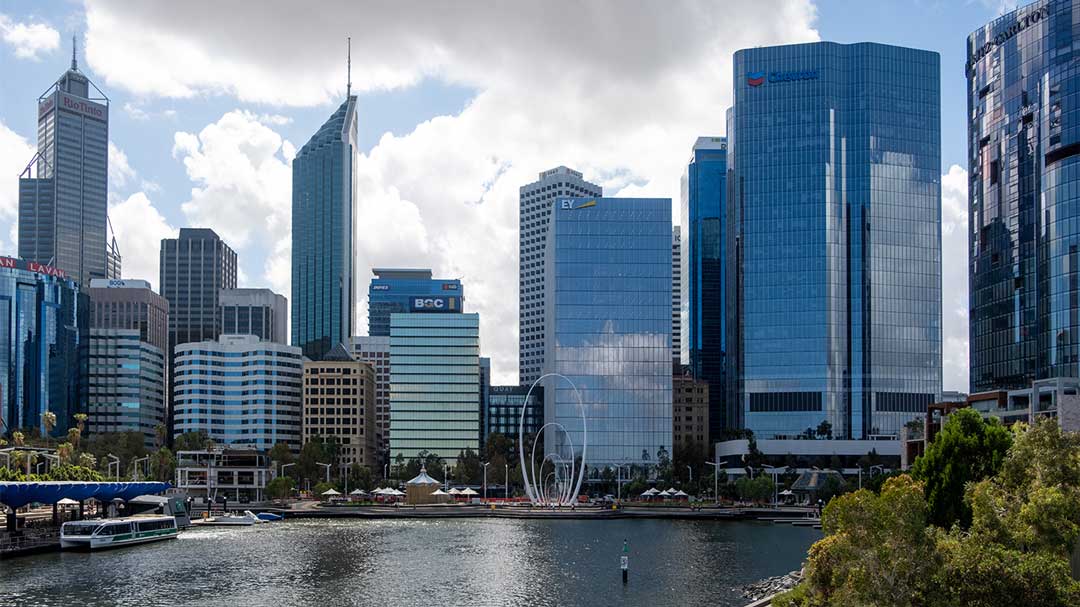While new business models, fresh ways of working, and an increasingly tech-enabled ecosystem have shifted the workplace needs of companies(see trend coverage in and ), one thing remains crucial throughout the disruption: the commercial office lease. Global CRE conditions have evolved across investment, office and logistics, with leasing momentum and capital flows improving into 2025 per JLL’s latest global outlook (). For current market intelligence and landlord/tenant dynamics, see .
A commercial lease is a binding agreement between landlord and tenant which sets out both parties’ obligations. The lease spells out terms and clauses for both landlord and tenant, so you, as the tenant, can better understand exactly what you’re entering into. Seeking out advice from trusted partners throughout your entire lease expiry process is smart, but when it comes to commercial office lease, advice from a tenant representative or legal advisor can help to ensure your lease agreement is favourable and fair.
What’s in a commercial lease agreement?
All commercial leases include what is known as ‘essential terms‘. As the name suggests, these terms are essential to the contract and without them, it may not exist at all. Essential terms are things like payment of rent, names of the parties involved and a description of the premises to be leased.
Outside of the essential terms, there are a number of clauses that can be included when it comes to your office lease. In this post, we will unpack six commercial lease clauses you can’t afford to NOT know about.
1. Subletting
The option to sublease part of your property to a third party can be helpful if your company’s space requirements are likely to change over the course of your lease. For example, if your business is downsizing, subletting some of your space can support cash flow by making use of unused floor space.
The option to sublease will need to be written into your lease agreement from the outset. Know that your original lease remains in effect even when a new sublease has been signed.
2. Repairs and maintenance
Maintenance and repair obligations should both be set out in your commercial lease. Generally, as a tenant, you are responsible for the ‘rented premises’ like floors, walls and fixtures, and are therefore required to repair and maintain them during your lease.
On the landlord side, maintenance and repairs to the structural parts of the premises, building systems and common areas like lobbies or the lifts are usually included. Check your lease carefully though as sometimes these items can be inserted under the tenant’s obligations.
3. Ending the lease early
Including a ‘break clause’ allows you to terminate the commercial lease earlier than the specified term. Most break lease clauses include a notice period where you must let your landlord know of your intention to break the lease.
If your lease agreement doesn’t include a break lease clause, and you end up needing to leave your lease earlier than the anticipated term, you may be required to buy out the term of your lease, assign it to a third party or otherwise negotiate an early exit with your landlord.
4. ‘Make good’ clause
A ‘make good’ clause is a standard inclusion in many commercial leases. The make good provision is negotiable but basically requires the tenant to return the premises back to their original condition, regardless of any improvements that have been made during the lease period.
Before you sign on the dotted line, ensure the make good clause is clear for both parties and you understand your obligations at the end of your lease. You’ll need to consider this additional cost when you decide whether to move at the end of your lease. Given rising re‑fit costs and reduced new‑start pipelines in many markets, make‑good budgeting warrants stress‑testing; cross‑check current cost trends and fit‑out benchmarks in .
Furthermore, complete a thorough condition report including photos and videos of the office at the start of your lease. This will help you to avoid nasty surprises at the end of your lease agreement by providing clear evidence of the original condition of the premises.
5. Rent review
The ‘rent review clause’ explains the process for increasing the rent as the term of the lease proceeds and is common in many commercial leases. The common methods of rent review include:
- ‘Fixed percentage increase review’ that specifies a fixed rent increase on designated dates during the lease term.
- CPI rent review which is directly correlated to movements in the CPI (Consumer Price Index).
- Market rent review that reassess your rent in relation to the state of the financial market.
Ensure you are aware of the type of rent review clause your lease includes and that it suits your business requirements. When negotiating CPI, fixed, or market reviews, anchor your positions to current cycle dynamics and transaction evidence. Macro and sector context is summarized in and CBRE’s market reports within .
6. Option clause
An ‘option clause’ gives the tenant the option to renew their lease at the end of the initial lease term. Usually, the option needs to be exercised within a certain time period (eg. six months before lease expiry), and the tenant must not have breached any terms in the contract during the lease period. An option clause isn’t mandatory, so check your lease before signing. Option value is highly market‑dependent; vacancy, pre‑leasing, and construction pipelines influence leverage, see current market snapshots and pipelines in .
As you can see, a commercial lease is complex and, as a legally binding document, you want to ensure you’ve got all the bases covered. But the lease terms are just one part of the lease expiry process. To negotiate the right terms for your needs, you need to consider every aspect of the process and develop a robust workplace strategy. For more commercial lease advice and to learn more about choosing the right workplace design partner for your strategy, download our free ebook today.
Understanding Commercial Lease Terms That Matter
The Importance of a Solid Commercial Lease Agreement
A commercial lease agreement outlines the terms and conditions between a landlord and a business tenant. These commercial lease agreements aren’t just formalities they define how your workplace operates and what you're responsible for. Whether you’re entering a commercial business lease agreement for the first time or reviewing an existing one, it’s essential to understand each section fully.
Working with a consultant or legal advisor can help you evaluate commercial lease agreement terms, identify risks, and ensure the lease works in your favour. It’s one of the smartest investments you can make as a business tenant.
Make Good Clauses and End-of-Lease Conditions
One of the most commonly misunderstood terms in a commercial tenant lease agreement is the make good clause. This clause outlines how the tenant must return the property at the end of lease and it can include significant costs. A clear understanding of both commercial make good obligations and end-of-lease make good expectations is vital before signing any agreement. For context on market cost pressures, review fit‑out and cost trends within .
A thorough condition report with photos and documentation at the beginning of your lease is a good way to protect your business from future disputes. If you're unclear about what's included in your commercial end of lease obligations, seek advice early in the process.
Reviewing and Negotiating Commercial Lease Terms
Lease terms should never be taken at face value. Whether you're signing a new lease or going through a lease review, take time to examine clauses around maintenance, break options, subletting, and rent increases. Many commercial property lease terms can be negotiated to suit your business goals.
Standard clauses like the break clause commercial lease, commercial lease maintenance clause, or option to renew often have strict notice periods or conditions attached. Know your deadlines and understand how each clause affects your ability to expand, exit, or adapt your space.
Crafting the Right Commercial Lease for Your Business
Every lease agreement business and commercial tenant signs should support long-term strategy. The best commercial lease clauses reflect your company’s priorities whether that’s flexibility, growth, or stability. Customisation of commercial lease terms and conditions ensures your workplace setup aligns with both legal requirements and operational needs.
Even the most standard commercial lease terms can include specific wording that shifts responsibilities, costs, and control. Clarifying your rights and obligations before committing helps avoid unnecessary surprises later on.
Conclusion: Your Lease Shapes Your Workplace Strategy
A commercial lease is more than just paperwork; it's the foundation of your business location. From subletting to rent reviews and making good obligations, understanding your commercial property lease advice is essential.
By taking the time to review your lease agreement commercial in detail, and getting expert guidance when needed, you put your business in the strongest position. For tailored advice on leasing, workplace planning, and office design, reach out to Axiom Workplaces.
Conclusion
A commercial lease is more than just paperwork; it's the foundation of your business location. From subletting to rent reviews and making good obligations, understanding your commercial property lease advice is essential.
By taking the time to review your lease agreement commercial in detail, and getting expert guidance when needed, you put your business in the strongest position. The better you understand your lease terms, the more control you have over your future space.
Further reading and current market references
Why Choose Axiom Workplaces?
At Axiom Workplaces, we do more than design offices. We support your business at every step of your leasing journey. Whether you’re negotiating a new commercial lease, reviewing your current agreement, or preparing for the end of lease, we’ll help you make smart, informed decisions.
Our team combines leasing insight with workplace design expertise to create spaces that support how your people work now and how they’ll work in the future. We’ll guide you through the process, from lease clauses to layout, ensuring your new space works for your people, your budget, and your business goals.
With Axiom, you don’t just get a fitout, you get a partner who understands the big picture.
Frequently Asked Questions (FAQs)

Axiom Workplaces combine your commercial fitout goals with our experience and expertise in evidence-based office design to create a thriving workplace for you and your workforce.






